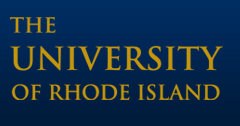Home > JMLE > Vol. 8 > Iss. 3 (2016)
Volume 8, Issue 3 (2016) Special Issue: Media Literacy and Disabilities
CALL FOR PAPERSSpecial Issue: Media Literacy and Disabilities
Journal of Media Literacy Education www.jmle.org
Guest Editor: Yonty Friesem, Central Connecticut State University
Interest in the needs of students with disabilities has been a longstanding dimension of media literacy education. For example, researchers have found that a media literacy curriculum significantly enhanced media literacy competencies of emotionally disturbed students and students with learning disabilities. Pediatricians who used cameras as an intervention with young patients at the children hospital, noted that producing their own videos allow children to have control over important information about their own health and well-being. Far from targeting only students with disabilities, the practice of Universal Design for Learning (UDL) often includes sensitivity to the appropriate use of digital technology for learning. Media educators need access to resources that will support them in engaging students with disabilities as they learn about media consumption and media production. Assistive technology is increasingly used to advance the equality of students with disabilities, but more knowledge is needed to understand how digital media may empower students with disabilities.
As we near the 25th anniversary of the Americans with Disabilities Act (ADA), we honor the 56 million people in the US who have disabilities that range from physical to emotional to learning disabilities. Today we are likely to encounter media portrayals of people with disabilities, such as the new LEGO figure in a wheelchair, Imperator Furiosa’s character in the 2015 Mad Max movie, Sheldon Lee Cooper’s character from TV show The Big Bang Theory, and even the new Sesame Street preschool character, Julie, who is autistic. Still, curricula or lesson plans examining representations of disability are hard to find.
This is why the guest editor Yonty Friesem invites the submission of essays, research reports and multimedia from researchers and educational practitioners who are examining disabilities in relation to media literacy education. In this special interdisciplinary issue, Journal of Media Literacy Education inviting scholars and practitioners to share their work with and about students with disabilities. We look forward to publishing theoretical papers, exploration of curriculum design, program evaluations, action research, and translational research. The “Voices From the Field” essay will capture the personal perspectives and insights of classroom teachers, youth media specialists, special education professionals and media professionals and others who design and create resources for special education students and those with disabilities. Examples of topics of special interest include:
- Theories of ability/disability in relation to media, culture and society
- Censorship, propaganda and disability
- The impact of social media on the education of students with disabilities
- Media representations of disabilities
- Media literacy interventions for students with disabilities
- Discrimination and prejudice in differential access to media, technology and education
- Media use habits of special education students
- Media production by students with disabilities
- Examples of pedagogical process of youth media on and with students on disabilities
- Incorporating ability/disability themes into a media literacy education course
- Using social media to engage students with disabilities
- The future of media literacy education in special education
- Policy analysis of special education programs in relation to the uses of media and technology in K-12 and higher education
- The application of Universal Design for Learning (UDL) to media literacy
Topics not listed above should address the theme of disabilities and media literacy education in some manner in order to be considered for this special issue. Please submit a 200-word abstract by email to friesem@ccsu.edu before June 30, 2016 to be considered for publication. Full papers will be due onNovember 1, 2016 and must be uploaded to the JMLE website: http://digitalcommons.uri.edu/jmle/. All papers undergo a blind peer-review process. The special issue is scheduled for publication in 2017.

